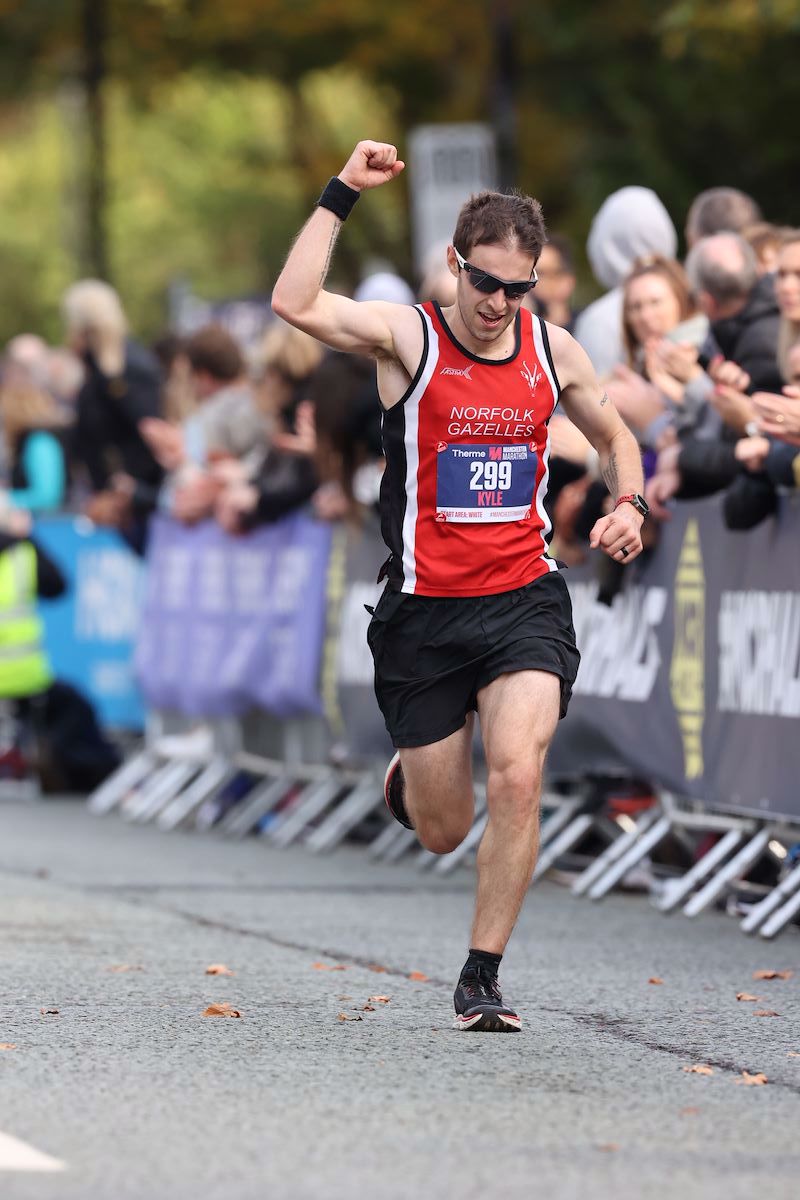“It’s not a PB course” is one of my least favourite phrases offered by runners to one another. It’s a simplistic, black and white comment for a topic that’s anything but.
Heading into a marathon, or at least into the training block, many of us will be hoping to be fitter than we’ve ever been, and to have a race day where it all clicks and allows us to run a PB. There are so many variables in this equation however, the phrase that this blog discusses ignores all but one of those. The course.
There’s no denying that some courses lend themselves to faster times than others, but that doesn’t mean you can’t run a PB on a tough course.
It’ll definitely be harder to run a faster time on a course like New York City with around 900ft of elevation, if your current fastest time was run at a flat race like the UK Boston marathon with around 100ft of elevation change. Does the elevation alone dictate whether you can run faster though? Absolutely not.
Before my 3rd official marathon in Manchester at the end of 2021, I was told I’d not realistically beat my PB of 2:39:23 from the UK Boston course (Manchester has around 350ft more elevation). Externally I said how I was in the best shape of my life (at the time) as was still confident I could have a good go, internally I was thinking of a far less polite response to this person’s unhelpful negative comment. In fairness, although I’m not a confrontational or particularly adversarial person, statements like this really fire me up for a challenge, so it was ok, and helped me run 2:37:06 the next day.
I’ve heard the “it’s not a PB course” phrase numerous time since. Sometimes from clients as they tell me what other people have said to them, and to a lesser extent, sometimes people’s own thoughts about their upcoming race.
Flat marathons such as the UK Boston marathon can be incredibly tough because they’re so exposed and loop through relatively uninteresting countryside with little to no support. The section where you join the half marathon runners on a narrow and non-closed road is also a bit of a nightmare and could easily result in slowing down or stopping for safety’s sake. A closed road marathon, such as London or Manchester, with big crowds and wide roads to not get too hemmed in by other runners, can allow you to be unimpeded, although this may not be the case for those aiming for 4 hours as it’s then often very busy.
Aside from weather conditions and the route itself, you’ve got to consider what you did before with nutrition, pacing and hydration. If you’ve improved all of these things, then running a PB can be very possible, even on a far harder course.
Obviously if you’re now wearing carbon shoes where you weren’t before, you’re in with a good shout of a PB even if your fitness is roughly the same as before. The most important thing though? You.
Your fitness. Regardless of whether a course is traditionally a faster one or not, or whether you’re going from a faster course to a slower one, you can still run a PB. The most important factor isn’t the course. If you are in the best shape of your life, if you’re fitter, stronger and mentally tougher than before, then you can run a PB.
If you’ve started improving all the technical, tactical and mental areas as well, then you can absolutely annihilate your marathon PB on far, far harder courses.
I mentioned earlier my own 2021 improvement from 2:39:23 to 2:37:06 despite a harder course, but the times and my advantage with coaching being my job perhaps make that less relatable.
If you’re in any doubt about what can be achieved from one marathon to the next when the preparation is better, check out the stories of James, Jon and Amy on the Success Stories page of my website. They embody what can be done even in less than ideal circumstances.
Written by Kyle Brooks, Running Coach based in Norwich, Norfolk

